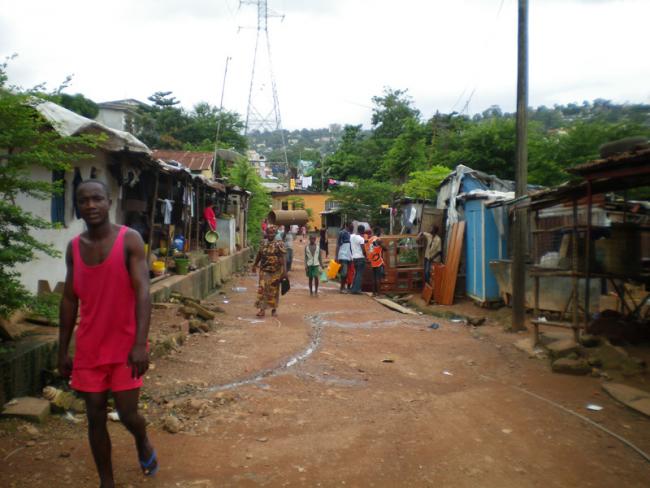Hope is the foundation Africa needs
SeaTac freelancer Judy Sone Vue took this photo in the African country of Sierre Leonne while working as an intern at a local newspaper.
Sat, 10/17/2009
Editor's Note: Times/News freelancer Judy Sone Vue from SeaTac earned a Foreign Intrigue scholarship from the University of Washington Communication Department to intern at an English-language newspaper in Sierra Leone. She shares her observations.
What comes to mind when one thinks of Africa?
Safaris. Wild animals. Poverty. Slums.
While some of these things are certainly very true for many parts of the continent, remember that Africa is a huge landmass consisting of 47 countries with roughly 2,000 different languages spoken.
While people from Africa may look the same at first glance, the diversity there is as prevalent and fragmented as you would find in the United States, perhaps even more so.
I had the privilege of getting a small taste of Africa this past summer. I spent two months interning at a local newspaper called Awoko in the West African nation of Sierra Leone.
The small country, which is just slightly bigger than Rhode Island and buffers the shores of the Atlantic, is perhaps best known as the setting of the popular movie, "Blood Diamond," starring Leonardo DiCaprio.
I learned many new things there, but the most valuable lesson I learned was never to underestimate what the people in Sierra Leone - and Africa in general - are capable of.
I was disillusioned when I saw how dependent the country is on foreign aid.
According to the European Network on Debt and Development, "Sierra Leone is very dependent on aid and nearly one half of the government budget being financed by international grants and loans."
As I walked the streets of Freetown, I would constantly see vehicles labeled UNDP - United Nations Development Program - filled with foreigners contracted for a temporary period of time to do whatever work was needed to improve Sierra Leone's development.
Every other building in Freetown was the office of some major non-governmental organization that offered services such as healthcare, legal aid and development training.
Indian or Lebanese immigrants ran many stores in the city with Sierra Leoneans only in the role of the hired help. When the government needed money for a major project, they relied on the Britain, China or Israel for investment.
"Were Sierra Leoneans capable of running their own country at all?" I wondered. For most of my time there, I sadly believed they were not.
To be fair, the nation suffered a decade-long civil war that just ended in 2002. The war ravaged much of the country and halted any form of development that was being made.
Many people say that if the war had never happened, Sierra Leone would not be in the Third World pit it finds itself in. The war's devastation was apparent in something as insignificant as an inoperable showerhead; clearly, it would not be there if it hadn't worked at some point in time.
I had no hope that Sierra Leone could ever dig itself out of that hole until I met Dr. Amada Sesay, who gave me some hope, if only a little.
Dr. Sesay is one of only two doctors in a rural and undeveloped town called Kabala, about 185 miles northeast of Freetown. He was a Sierra Leonean who had been fortunate enough to go to medical school in China. Such training could have opened doors for him anywhere in the world.
I asked him, "What made you come back here, where everything is so backwards?" Especially in a town such as Kabala, which matched every possible stereotype of African poverty one could imagine.
"I have a duty to my country. These are people," he said simply.
After meeting him, I realized I had been letting pessimism get the better of me. Sierra Leoneans are smart and capable people who have the odds stacked high against them.
Despite having won independence from Britain in 1961, the nation still has a long way until it can become a truly independent African state. If they can reach a time where the country is developed and prosperous, they won't be able to do it by themselves.
But that doesn't mean they will never reach that stage. And it doesn't mean that Sierra Leone is a child who constantly needs her hand held.
Instead, Sierra Leone is a child that has suffered inconceivable abuse and is slowly bouncing back from that dark period. Though it may wear thin, patience is needed until it can reach a point where poverty, infant mortality and lack of education are the exceptions, not the norm.
Many people, native Africans and foreigners alike, have thrown up their hands in frustration and given up hope.
But I have now regained hope because that is the foundation that Sierra Leone and many other African countries need.


